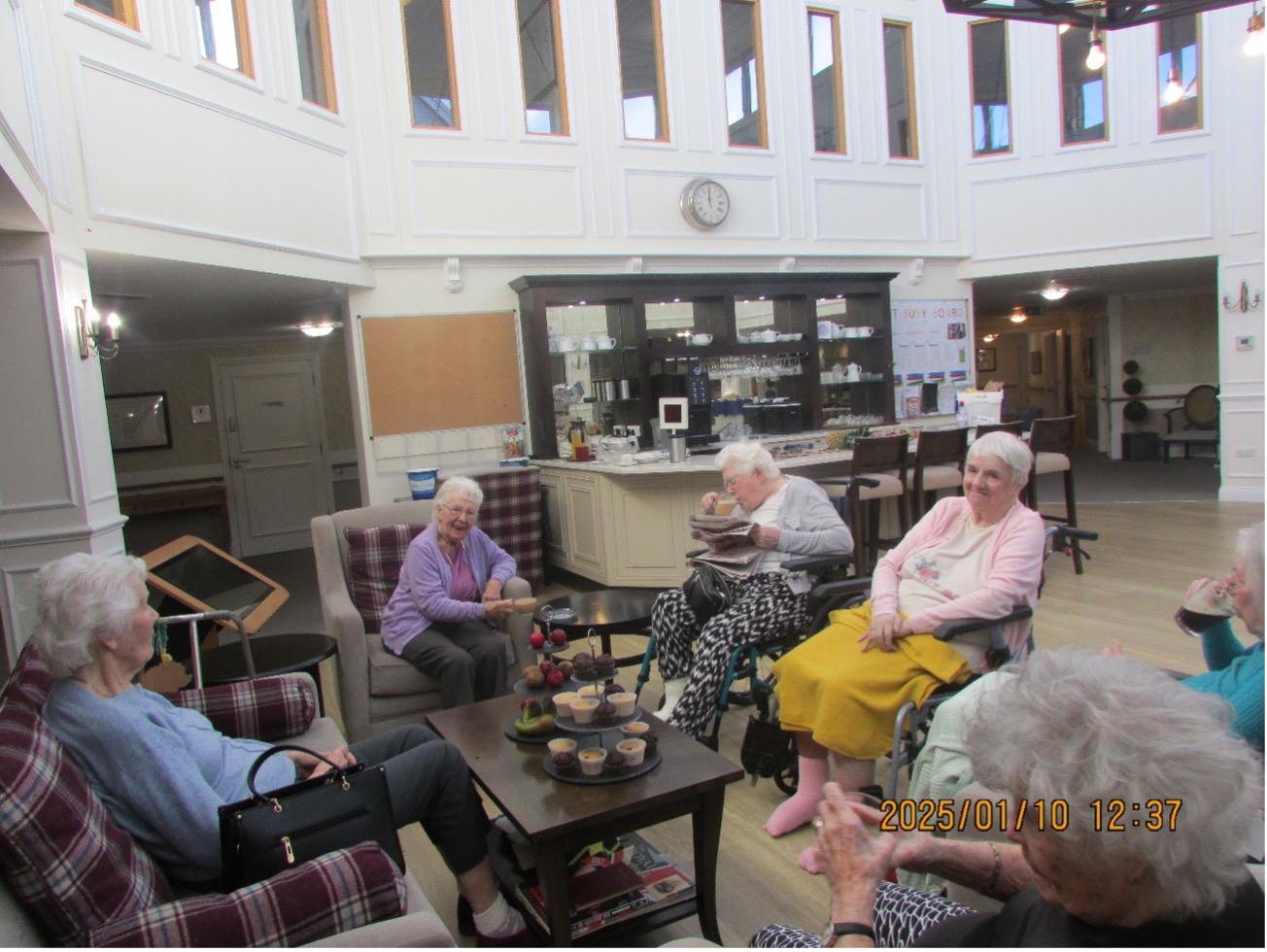How Much Do Care Homes Cost?

The search for care homes in the UK is rising sharply in line with the increase in life expectancy, but with that comes the rise in care home costs. Due to the high care home fees, many individuals are unsure whether moving a family member to a care home is the best choice long-term.
In this blog, we talk about the average costs of fees in UK care homes, what's expected to be included in the fees and the financial options that are available.
Care Home & Nursing Home Fees
In the UK, each care home and nursing home structure their fees differently. The main differentials are the types of care services offered, what kind of activities and facilities are available at the home and any additional services they provide to residents, therefore the fees will vary. Most care homes will ask for a fixed rate that is paid on a weekly basis and others may offer a pay-as-you-go structure.
Most care homes will cover in their fees things such as daily personal care, accommodation and meals and charge for additional personal services such as opticians, physiotherapy and hair appointments. Some care homes will charge a flat fee where everyone is included, but you will likely pay more.
Average Cost of Care Homes In The UK
Carehome.co.uk states that the average care home costs in the UK are between £27,000 to £39,000 per year which is just what you typically spend on residential care, the most basic type of care. If someone requires advanced care due to high dependency or complex needs, nursing care or dementia care will be more appropriate and this will cost more.
Similarly, with house prices, the location will also affect the cost of a care home. Care homes in the South of England, such as London, will cost more than care homes situated in the more Northern regions. Each care home offers different things so it is important to look around in your desired location and compare the costs, care options and facilities within a number of care homes before making a final decision.
Cost of Residential Care
When a person moves into a residential care home, the fee will cover their accommodation, meals, snacks, personal care and any activities. Residential care is the best option for those that require additional support with daily tasks such as dressing, washing and mobility, as well as for those who are no longer able to maintain their own home.
Cost of Nursing Care
Nursing homes or nursing care received in a care home is usually more expensive when compared to residential care as the level of care provided is more advanced, whereby you receive care from a nurse rather than a carer, hence why the fees are more expensive. Any nursing care costs will include accommodation, meals, activities and personal care in addition to 24-hour medical care.
Cost of Dementia Care
Dementia care is provided specifically to those living with dementia. There are currently 900,000 people living with dementia in the UK which is expected to continue to rise in future years. With the rise of dementia cases, dementia care will continue to be a popular care need in the UK and around the world. Dementia care tends to cost more in comparison to residential care as it requires care staff to be trained in dementia care, which means they can provide the right care associated with the stages and symptoms of the condition.
Many families start their care search with respite care which is short-term care and often used as a way of getting a much-needed break from caregiving responsibilities. If you request respite care for your loved one, this tends to cost more on a weekly basis due to the care being short-term. Many family members start out with this type of care and once a person's dementia progresses, long-term dementia care may become the best option.


What's Included In Care Home Fees
As mentioned previously, the cost of a care home will differ depending on where the care home is located, the care services it provides as well as its facilities. The weekly fees will usually cover accommodation, meals, personal care, and any activities, and if someone receives nursing care, medical support also.
Some care homes will charge an additional cost for some of their services, so it is really important that you check with a care home and compare this with other care homes in your preferred area. Some care homes have adopted an all-inclusive way of living for their residents which means all care services, facilities, activities and excursions are included in the weekly fees, so you don't have to worry about hidden costs.
What Is an All-Inclusive Care Home?
Choosing an all-inclusive care home has become an increasingly popular choice for many people, with the care, amenities and additional services all being included in the weekly fee. Despite being more expensive in terms of weekly fees, care seekers often find this type of care home to be more appealing as it provides peace of mind for residents as they can enjoy all the services and facilities available at the home for a better quality of life.
With the current cost of living crisis in the UK, moving to an all-inclusive care home means an older individual can receive all the care, support, meals and amenities they require without having to worry about the constant increase in food prices and energy bills which many are faced with when they live at home.
When looking for an all-inclusive care home it's important to find a care home that matches a person's care and well-being needs. If your family member has advanced dementia for example, you'll need to find a care home that can provide the right care for their high-level needs as some care homes will only provide care for low-level dementia.
Who Pays Care Home Fees?
Care home and nursing home fees are usually expected to be paid by the person who requires the care, known as 'self-funding'. However, not everyone is in a position to pay for the personal care costs themselves. People who are not able to cover the care home costs can seek financial support from the local authority or the NHS which is known as NHS Continuing Healthcare.
Financial Help To Pay For Care Costs
Whether funding can be given depends on each individual circumstance. The most common funding is provided by the local council. This is when a financial assessment is carried out by the local council which assesses an individual's income and assets to work out whether it falls above or below the funding threshold.
If an individual has complex health needs or what's considered a 'primary health need', they may be deemed eligible for NHS Continuing Healthcare (CHC) funding. To qualify for NHS Continuing Healthcare, a person will need to have a care needs assessment carried out by a multidisciplinary team (MDT). This assessment is not means tested meaning it does not factor in a person's savings or assets.
If a person does not qualify for the local authority or NHS Continuing Healthcare funding, there is the option to apply for a deferred payment agreement for care costs. This is when the local authority will loan the care fees then once an individual's assets are sold such as their home, they will pay back the money back to the local authority. It's important to note that interest is usually added on top so you will end up paying more in the long run.
Financial help for care costs isn't always guaranteed for an individual and some care homes may not accept any form of government funding. Before you visit a care home, you should ask the care home manager what type of funding they accept, if any.
Local Authority Funding
Local authority funding is funds provided by the local council if a person is unable to pay for their care home fees. To qualify for this type of funding, an individual is required to have a means test, which takes into consideration a person's savings and assets. Full funding will be granted if their savings or assets are under £14,250, or if between £14,250 and £23,250, partial funding will be supplied. Anything above the upper capital limit of £23,250, a person will have to fund the care themselves.
Once a person is eligible for funding, the local authority will provide a specific weekly amount towards care home costs known as a 'personal budget'. Depending on the individual's health needs they may be able to increase a personal expenses allowance, so the amount will differ for each recipient.
If you receive local authority-funded care, the council will only pay for the basic care costs, for example, personal care, food and accommodation. If a person has chosen a more expensive care home that exceeds their personal budget, the local authority will ask for the rest of the fees to be paid by the individual or potentially a family member, called a 'top up' fee but that's not always possible.
NHS Funding Support
If a person has complex or multiple health needs, they may be able to acquire NHS-funded nursing care. NHS Continuing Healthcare (CHC) will cover the full costs of a nursing home or nursing care in a care home.
A care needs assessment will be carried out by a multidisciplinary team to decipher if a person qualifies for NHS funding. The team will look at a person's healthcare needs including the following characteristics; nature, intensity, complexity and unpredictability. Those living with a physical and/or mental disability, terminal illness or severe health condition are often the types of individuals who qualify.
Self-Funded Care Home Costs
You are considered a self-funder if you pay for the cost of care yourself. This will be expected from someone who has income or assets worth over a certain amount, and they will be responsible for the costs of their care. If their care needs worsen and become more severe, they may be able to apply for NHS-funded nursing care in the future.
Moving into a care home is a big financial commitment for an individual so they will need to carefully consider the amount of fees they may be expected to pay.
Care Home Fees Cap 2025
The UK government has announced its plans to implement a care home fee cap starting in October 2025. This cap will be fixed at £86,000 which will be the maximum amount for paying fees in a person's lifetime. This will cover the basic expenses of care home services such as personal care such as washing, feeding, dressing and managing health problems, but will not cover things such as accommodation and meals.
The main aim of introducing this cap is to provide reassurance for those that require long-term care and their families. This means that individuals can keep more of their own money in their lifetime and not have to spend it all on care home fees once the cap limit is reached. The cap however will not cover the cost of any additionals that care homes might offer to residents such as particular activities, excursions, transportation or salon services.


All-Inclusive Life at Beaumont Manor Care Home
At Beaumont Manor Care Home, we are proud to provide a quality way of life for 68 residents in the coastal town of Frinton-on-Sea. At our all-inclusive care home we provide exceptional care and a variety of modern facilities. The team at our home is dedicated to supporting residents with their interests and hobbies which can be achieved by our fantastic on-site amenities including a hair salon, private garden, cinema room, garden and jam-packed activities programme.
The Beaumont Manor staff are committed to their duty to provide a high standard of care within our care services which include Residential Care, Dementia Care, Nursing Care and Respite Care. We ensure to put the health, safety and well-being of our residents first in all we do through our person-centered approach to care.
We want our residents to make the most of each day in whatever brings them joy, and provide opportunities where they can learn new skills and gain new experiences. Beaumont Manor's services and amenities are included in the weekly fees for residents to get the very best all-inclusive experience.
Find Out More About Our Care Home in Frinton-on-Sea
To learn more about our care services or our care homes fees at Beaumont Manor Care Home, get in touch with a friendly member of the team by calling 01255 388 500 or emailing info@beaumontmanorcare.co.uk.





